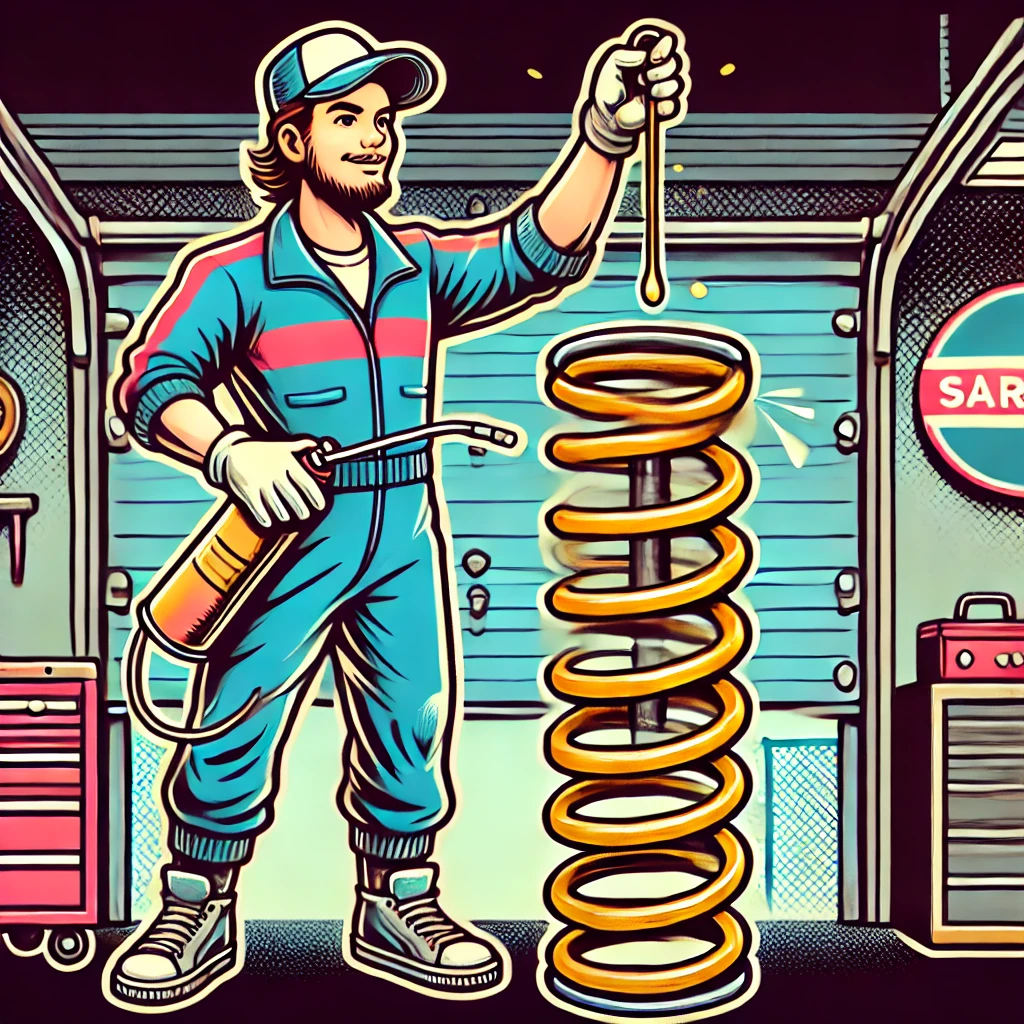
A well-maintained garage door operates smoothly and quietly like a well-tuned instrument. Central to this harmony are the springs, which bear the weight and facilitate the door’s movement. Proper lubrication of these springs ensures efficient operation and extends their lifespan. In this article, we’ll explore the best lubricants for squeaky garage door springs, provide a step-by-step guide to lubrication, and address common questions related to garage door maintenance.
What is the Best Lubricant for Squeaky Garage Door Springs?
Choosing the proper lubricant can be the difference between a garage door that glides effortlessly and grinds and squeaks. Let’s compare some top-rated garage door lubricants:
- Gasoila Free All Rust Eater Deep Penetrating OilPros:
- Penetrates deep to free rusted or frozen parts.
- Lubricates and prevents further rusting.
- Not silicone or lithium-based; may not provide long-lasting lubrication for garage door springs.
- May not be suitable for plastic components.
- Blaster Chemical Company 9.3 Oz Garage Door LubePros:
- Specifically formulated for garage doors.
- Reduces friction and noise.
- Prevents rust.
- May require frequent reapplication in high-use scenarios.
- Some users report a strong odor.
- WD-40 Specialist White Lithium Grease SprayPros:
- Provides heavy-duty lubrication.
- Ideal for metal-to-metal applications.
- Protects against rust and corrosion.
- Not suitable for plastic or nylon components.
- Can attract dust and dirt over time.
- 3-IN-ONE Professional Garage Door LubricantPros:
- Quick-drying, leaving no messy residue.
- Prevents corrosion.
- Includes a spray straw for precision application.
- May require multiple applications for heavily corroded parts.
- Some users prefer a thicker lubricant for springs.
- DuPont Teflon Silicone Lubricant Aerosol SprayPros:
- Offers waterproof, non-stick lubrication.
- Ideal for plastic and rubber components.
- Prevents rust and corrosion.
- Not as long-lasting on metal components.
- May not provide sufficient lubrication for heavy-duty springs.

When selecting a lubricant, consider the material of your garage door components and the specific needs of your system. Silicone-based lubricants are excellent for plastic and rubber parts, while lithium-based greases are ideal for metal components. Sometimes, lubricant is insufficient, and you will need garage door spring replacement services from a professional garage door repair company.
Steps for Lubricating a Garage Door Spring
Proper lubrication is a straightforward process that can be accomplished with a few simple steps:
- Gather Necessary Supplies
- Silicone-based or white lithium grease lubricant.
- Clean cloth or rag.
- Step ladder (if needed).
- Disconnect the Garage Door Opener
- Unplug the opener or switch it off to prevent accidental activation during maintenance.
- Clean the Springs
- Wipe down the springs with a clean cloth to remove dust, dirt, and old lubricant.
- Apply the Lubricant
- Spray a light, even coat of lubricant along the length of the springs.
- Avoid over-application to prevent dripping or accumulation of excess lubricant.
- Operate the Door Manually
- Manually open and close the garage door several times to distribute the lubricant evenly across the springs.
- Wipe Off Excess Lubricant
- Use a clean cloth to remove any excess lubricant to prevent dirt and debris from sticking.
Regular maintenance, including lubrication every six months, can keep your garage door operating smoothly and extend the life of its components.

What Kind of Oil Do You Put on Garage Door Springs?
While traditional oils can provide temporary lubrication, they often attract dust and debris, leading to gunky buildup. For garage door springs, it’s advisable to use a silicone-based spray or white lithium grease. These lubricants offer long-lasting performance without the mess associated with standard oils. They also resist temperature fluctuations, ensuring consistent performance year-round.
Should You Lubricate Garage Door Tracks?
It’s a common misconception that garage door tracks require lubrication. Applying lubricant to the tracks can cause the door to become misaligned, as the rollers may slip. Instead, keep the tracks clean by wiping them down with a damp cloth to remove dirt and debris. If you notice any issues with the tracks, such as dents or bends, it’s best to consult a professional for repairs.
